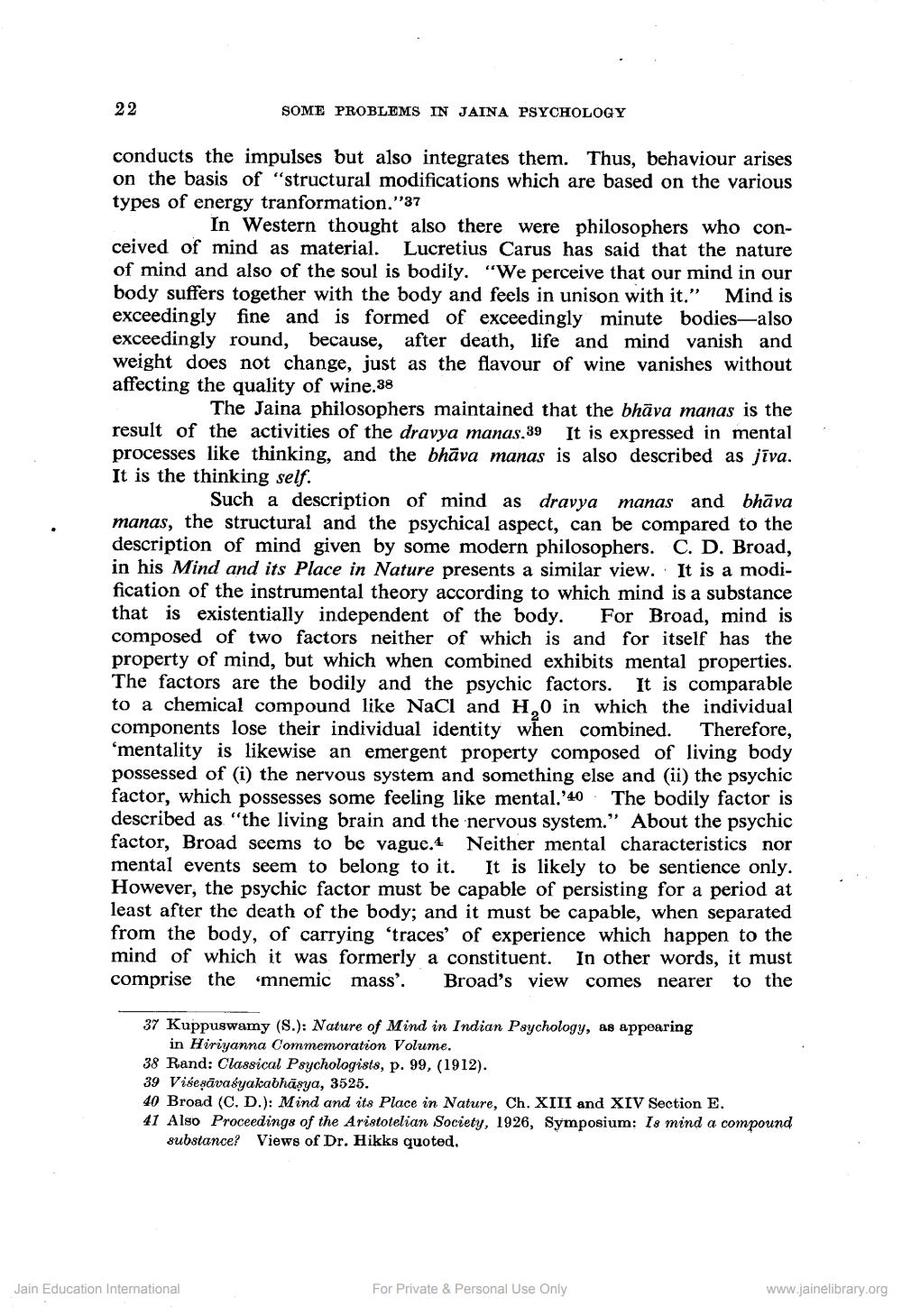________________
22
SOME PROBLEMS IN JAINA PSYCHOLOGY
conducts the impulses but also integrates them. Thus, behaviour arises on the basis of "structural modifications which are based on the various types of energy tranformation."37
In Western thought also there were philosophers who conceived of mind as material. Lucretius Carus has said that the nature of mind and also of the soul is bodily. "We perceive that our mind in our body suffers together with the body and feels in unison with it." Mind is exceedingly fine and is formed of exceedingly minute bodies—also exceedingly round, because, after death, life and mind vanish and weight does not change, just as the flavour of wine vanishes without affecting the quality of wine.88
The Jaina philosophers maintained that the bhāva manas is the result of the activities of the dravya manas.39 It is expressed in mental processes like thinking, and the bhāva manas is also described as jīva. It is the thinking self.
Such a description of mind as dravya manas and bhāva manas, the structural and the psychical aspect, can be compared to the description of mind given by some modern philosophers. C. D. Broad, in his Mind and its Place in Nature presents a similar view. It is a modification of the instrumental theory according to which mind is a substance that is existentially independent of the body. For Broad, mind is composed of two factors neither of which is and for itself has the property of mind, but which when combined exhibits mental properties. The factors are the bodily and the psychic factors. It is comparable to a chemical compound like NaCl and H,0 in which the individual components lose their individual identity when combined. Therefore, 'mentality is likewise an emergent property composed of living body possessed of (i) the nervous system and something else and (ii) the psychic factor, which possesses some feeling like mental.'40. The bodily factor is described as "the living brain and the nervous system.” About the psychic factor, Broad seems to be vague. Neither mental characteristics nor mental events seem to belong to it. It is likely to be sentience only. However, the psychic factor must be capable of persisting for a period at least after the death of the body; and it must be capable, when separated from the body, of carrying 'traces of experience which happen to the mind of which it was formerly a constituent. In other words, it must comprise the "mnemic mass'. Broad's view comes nearer to the
37 Kuppuswamy (S.): Nature of Mind in Indian Psychology, as appearing
in Hiriyanna Commemoration Volume. 38 Rand: Classical Psychologists, p. 99, (1912). 39 Viseşāvasyakabhāsya, 3525. 40 Broad (C. D.): Mind and its Place in Nature, Ch. XIII and XIV Section E. 41 Also Proceedings of the Aristotelian Society, 1926, Symposium: Is mind a compound
substance? Views of Dr. Hikks quoted.
Jain Education International
For Private & Personal Use Only
www.jainelibrary.org




